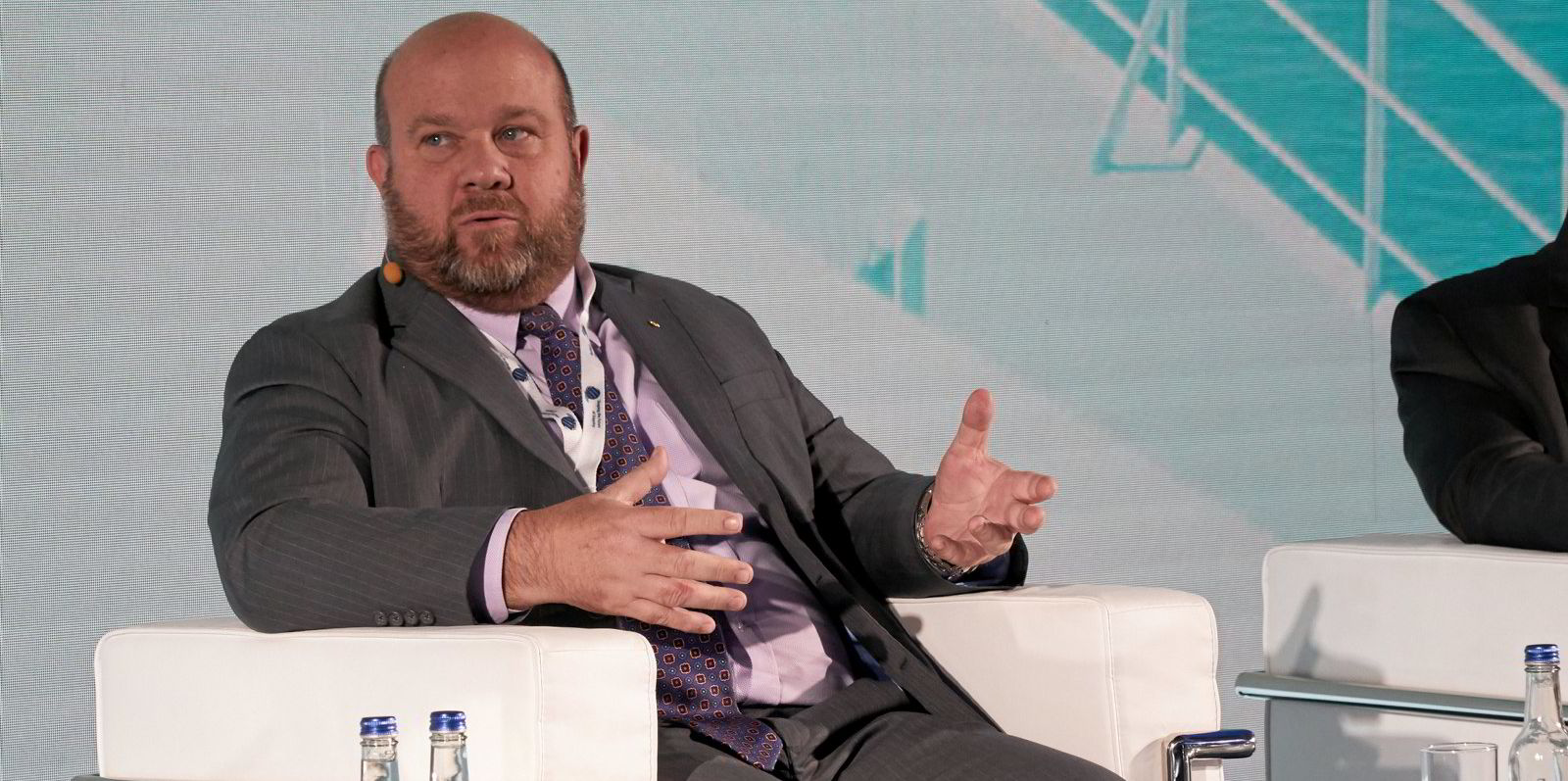The number of boxships changing hands has fallen for the second year in a row, but the Red Sea situation could alter that.
Alphaliner tallied a total of 285 vessels sold in 2023, with a capacity of 934,523 teu.
“After a record year for secondhand transactions in 2021, demand from potential buyers has been impacted by the enormous pipeline of newbuilding tonnage, which began in earnest from mid-2023,” the consultancy said.
In 2022, 324 container ships of 1.07m teu were sold. The year before that, 598 units of 2.04m teu changed hands, as carriers sought to operate every last available vessel to benefit from explosive rates.
Capacity bought and sold represented 3.5% of the total fleet last year, down from 4.2% in 2022 and a huge 8.3% in 2021.
The first half of 2023 was relatively strong, with 34 ships sold on average per month, then there was big decline to 14 per month.
This coincided with a spike in newbuilding deliveries, which began to rise from March. New capacity entered the fleet at a rate of more than 200,000 teu per month, Alphaliner said.
The new Carbon Intensity Indicator will make older, smaller and less energy-efficient ships increasingly expensive to operate, reducing their value and deployment potential, the company noted.
But this did not deter buyers last year, with sales of vessels of 20 years and over surging.
These ships comprised 32% of total transactions, up from 19% in 2022.
Drop in prices brings smaller buyers back
Falling asset values helped spur deals. Vessels lost between 20% and 30% of their value during the year.
MSC Mediterranean Shipping Company and CMA CGM continued to snap up tonnage, although the latter’s activity dropped in the second six months.
The duo accounted for a “staggering” 33% of all purchases last year, according to Alphaliner.
MSC alone bought one-quarter of the ships changing ownership, adding nearly 220,000 teu.
The drop in prices also brought smaller lines and non-operating owners back to the sale-and-purchase table.
Arkas, Fesco, Mahoney, Medkon, NPDL and Transworld were some of the names involved.
On the tonnage provider side, MPC Container Ships, Global Ship Lease, Technomar, Cosmoship, Peter Dohle and Conbulk were the most active buyers.
Before the Red Sea situation exploded, 2024 was not looking promising for the secondhand market.
But with freight and charter rates now higher as vessels reroute on longer trips, this could change.
“Despite a large orderbook, a rebound in demand, even for older ships, and a recovery in asset prices are now becoming possible, especially if the conflict finds no quick resolution,” Alphaliner said.







